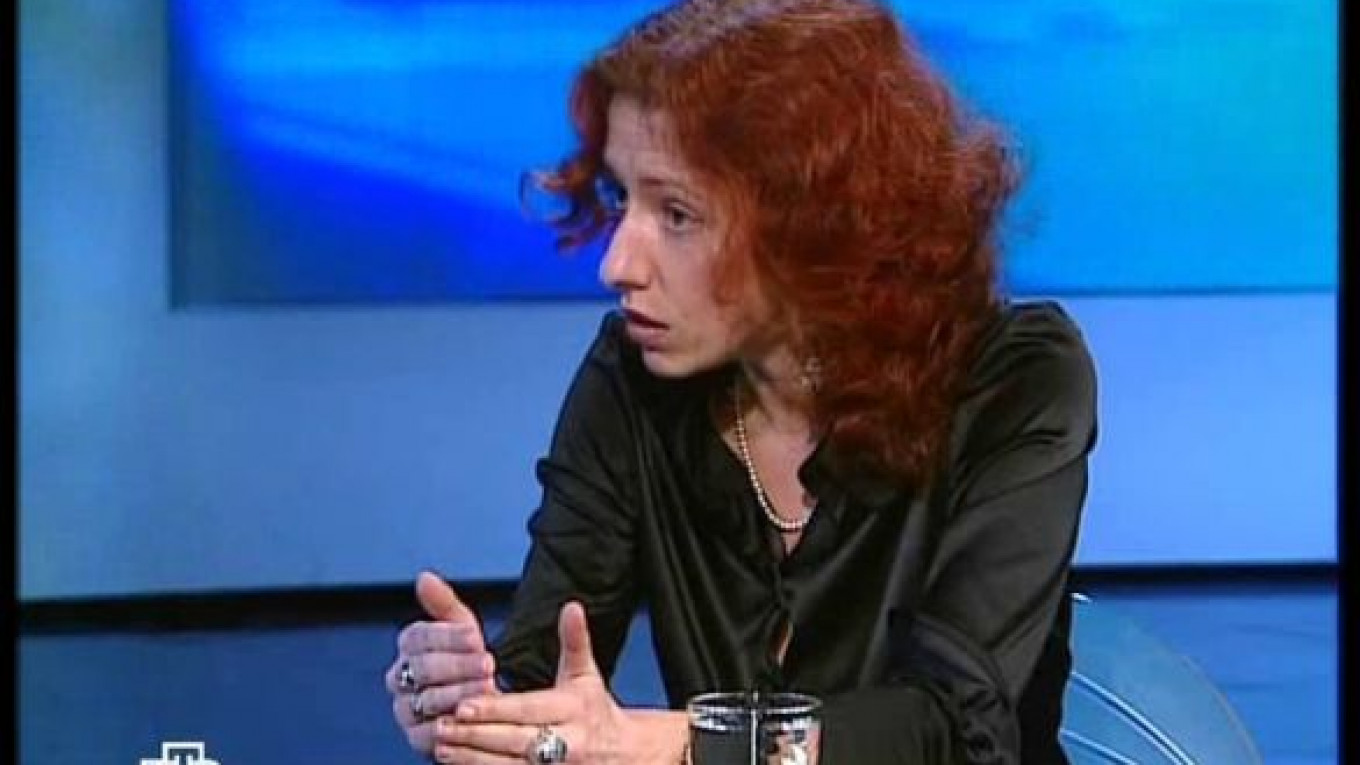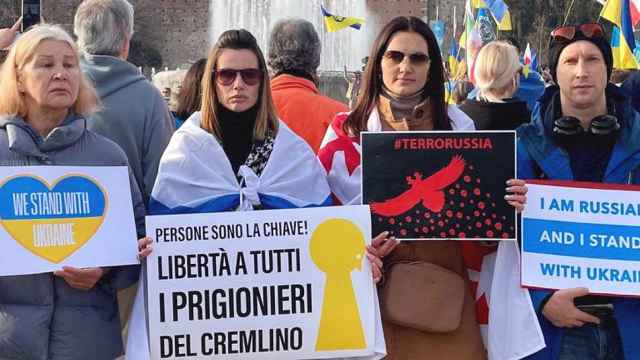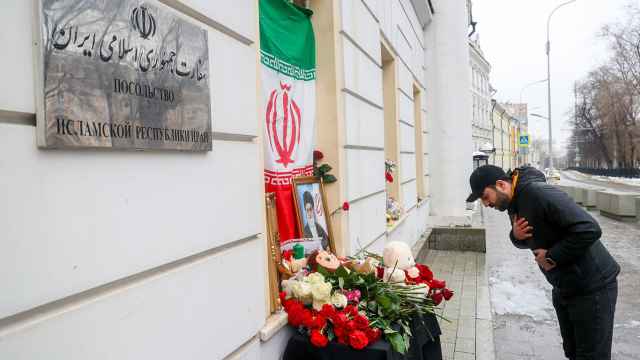U.S. Ambassador Michael McFaul has condemned a series of anonymous threats against a prominent human rights researcher that sent a chill through the human rights community and brought back eerie memories of violent attacks on activists in recent years.
“We expect the authorities to investigate threats against Tatyana Lokshina. Civil discussion is the path to change, not threats and violence,” McFaul wrote in a Twitter message late Thursday night.
Lokshina, a North Caucasus specialist for Human Rights Watch, announced Thursday that she had received nine threatening text messages over a three-day period in late September.
Several messages made reference to Lokshina’s unborn child and other personal details, including her movements, details of her pregnancy and her unlisted home address.
We “are waiting for the birth of your child for him to join our fight for freedom, so help us Allah,” one of the messages read, Human Rights Watch said in a on its website.
The authors also said they were nearby and were coming after her, and they predicted an “uneasy ‘birth.’”
The presence of confidential information suggested that Lokshina was under surveillance, possibly with the help of law enforcement and security officials, the statement said.
The threats “were clearly made with the intent of scaring Tanya and Human Rights Watch to stop our monitoring and reporting on human rights in Russia today,” Human Rights Watch executive director Kenneth Roth said in a videotaped message presented at a news conference Thursday.
Dozens of human rights activists and journalists, especially those who work in the turbulent North Caucasus, have suffered harassment and attacks in recent years. Perpetrators are rarely found.
The victims of violence all received threatening text messages, Human Rights Watch said.
Lokshina’s case drew comparisons to that of Natalya Estemirova, a Novaya Gazeta reporter and Human Rights Watch consultant who was kidnapped in Dagestan and found dead in 2009.
Investigators have begun a check into the threats against Lokshina, prompted by an appeal from national human rights ombudsman Vladimir Lukin, a spokesman RIA-Novosti.
The threats came amid a broad crackdown on civil society following President Vladimir Putin’s return to the Kremlin in May, Roth said, citing new laws that restrict demonstrations, raise penalties for defamation and designate certain non-profits “foreign agents.”
“The climate for human rights advocacy in Russia is as bad as we’ve seen in 20 years,” he said. “Russia’s international partners should make clear that the surest route to pariah status is to reinstate the bleak human rights environment of the Soviet era.”
Lokshina has worked on human rights in Russia for about a decade. She served as director of the Moscow Helsinki Group and the Demos think tank before joining Human Rights Watch in 2008.
A Message from The Moscow Times:
Dear readers,
We are facing unprecedented challenges. Russia's Prosecutor General's Office has designated The Moscow Times as an "undesirable" organization, criminalizing our work and putting our staff at risk of prosecution. This follows our earlier unjust labeling as a "foreign agent."
These actions are direct attempts to silence independent journalism in Russia. The authorities claim our work "discredits the decisions of the Russian leadership." We see things differently: we strive to provide accurate, unbiased reporting on Russia.
We, the journalists of The Moscow Times, refuse to be silenced. But to continue our work, we need your help.
Your support, no matter how small, makes a world of difference. If you can, please support us monthly starting from just $2. It's quick to set up, and every contribution makes a significant impact.
By supporting The Moscow Times, you're defending open, independent journalism in the face of repression. Thank you for standing with us.
Remind me later.






